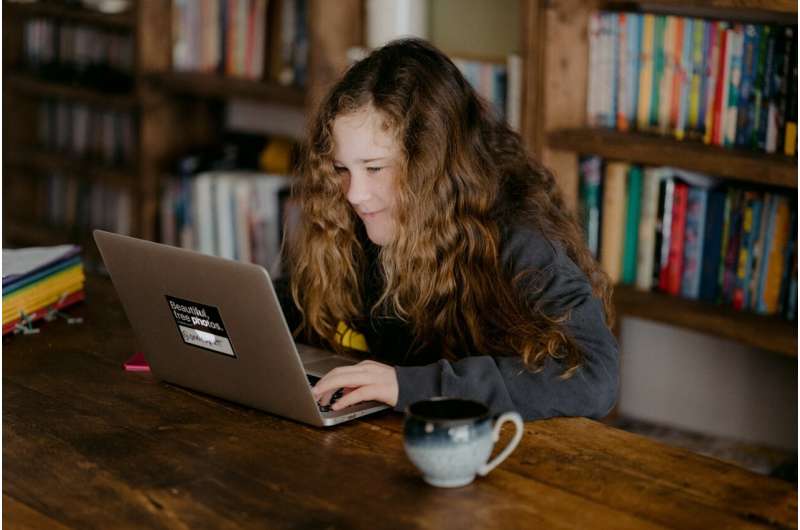Screen time aids learning, but gender gaps remain

Stephanie Baum
scientific editor

Andrew Zinin
lead editor

Current parenting and educational trends often prioritize structured, adult-supervised activities in an attempt to optimize children's educational outcomes. This often comes at the expense of unstructured leisure time spent with peers, which is frequently perceived as riskier and less productive—a perspective that's echoed in much of the research on digital media use.
"The dominant view suggests that outside of explicitly educational activities, screen time is detrimental to academic achievement," said Gabriel E. Hales, a media and information doctoral candidate in the Michigan State University College of Communication Arts and Sciences.
New research from Hales and Keith N. Hampton, professor of media and information at MSU, challenges the assumption that unstructured time spent on digital media is inherently harmful or unproductive.
The study, in the journal Information, Communication & Society, reveals an indirect positive relationship between digital media and academic achievement, measured through SAT scores in a sample of 2,582 students in grades 8–11.
"Time spent on social media and other digital activities, such as video games, contributed substantially to digital skills. These skills were strong predictors of performance across academic domains," said Hampton, who is also director of research at the MSU Quello Center, which focuses on the social and economic implications of communication, media and information technologies of the digital age, as well as the policy and management issues raised by these developments.
Hampton and Hales did find a small, direct negative relationship between social media use and achievement for girls. However, this relationship was not that different from the effects of time spent in person with friends and academic achievement. Unlike time spent in person, socializing and playing online builds digital skills. The benefits gained through digital skill development outweigh the negative effects of social media use.
The study's findings highlighted a significant gender gap: Boys experience substantially larger benefits when considering the relationship between unstructured digital media use, digital skills and academic achievement. The indirect benefit of digital skills had a larger benefit for boys in reading, writing, and math.
"While some existing gender differences in academic achievement, such as girls' advantage in reading and writing, were smaller as a result of unstructured time spent on digital media, others, mainly boys' stronger performance in math persisted," said Hales.
Both Hales and Hampton emphasize that while unstructured digital media use can help narrow the gap between girls' and boys' reading and writing achievement, it may deepen disparities in math. Boys tend to engage in a broader range of online activities, including social media and more video game play, which contribute to more digital skills and higher performance across academic domains. Socializing and playing online can help boys catch up to girls in reading and writing, but it may not help eliminate gender differences in math scores.
"This could perpetuate broad inequalities, such as the underrepresentation of women and STEM careers," said Hampton. "Some have proposed that reducing gender stereotypes around gaming could encourage participation and contribute to math-related skill development among girls, but there are still uncertainties around that idea."
More information: Gabriel E. Hales et al, Rethinking screen time and academic achievement: gender differences and the hidden benefit of online leisure through digital skills, Information, Communication & Society (2025).
Provided by Michigan State University




















